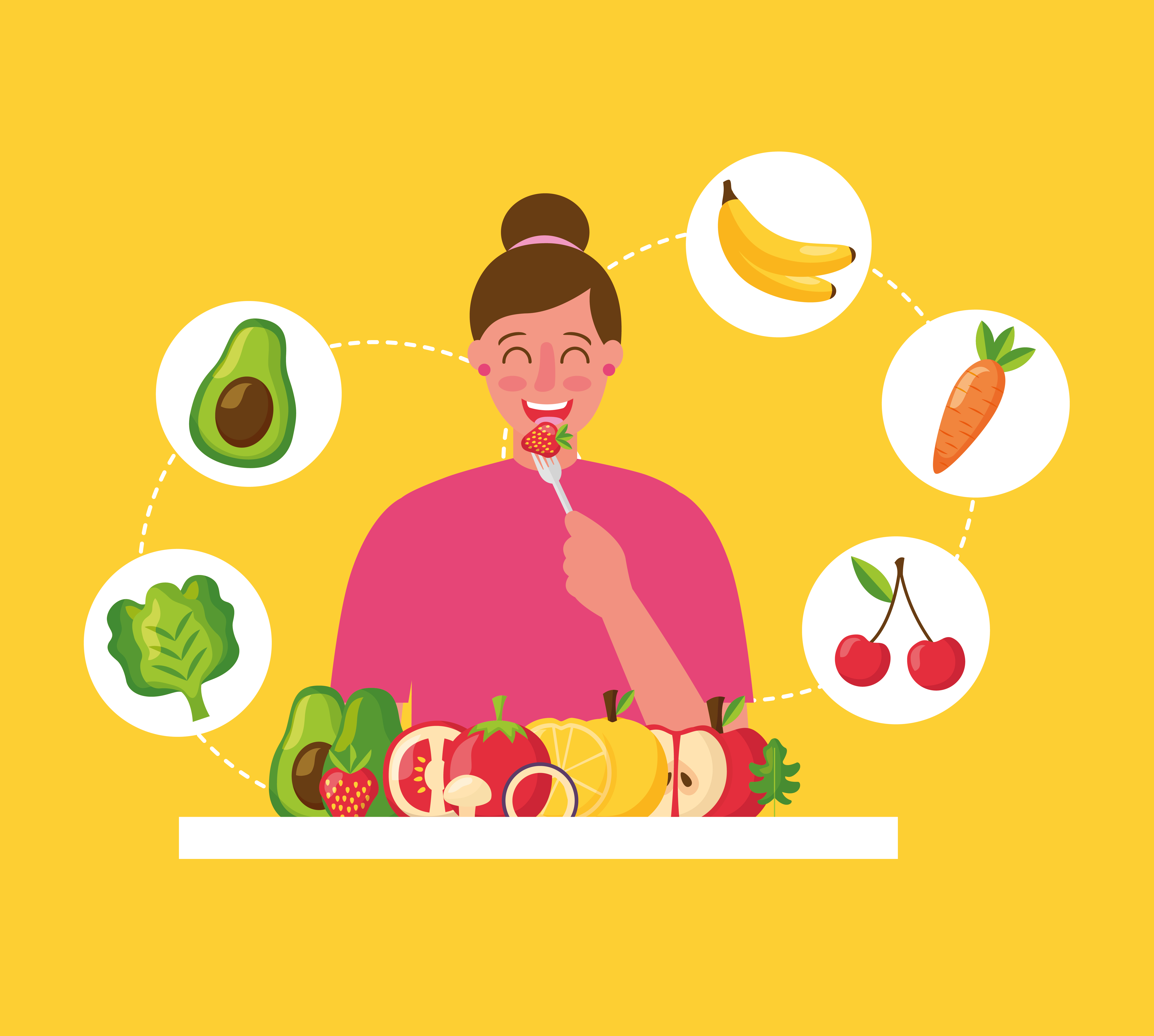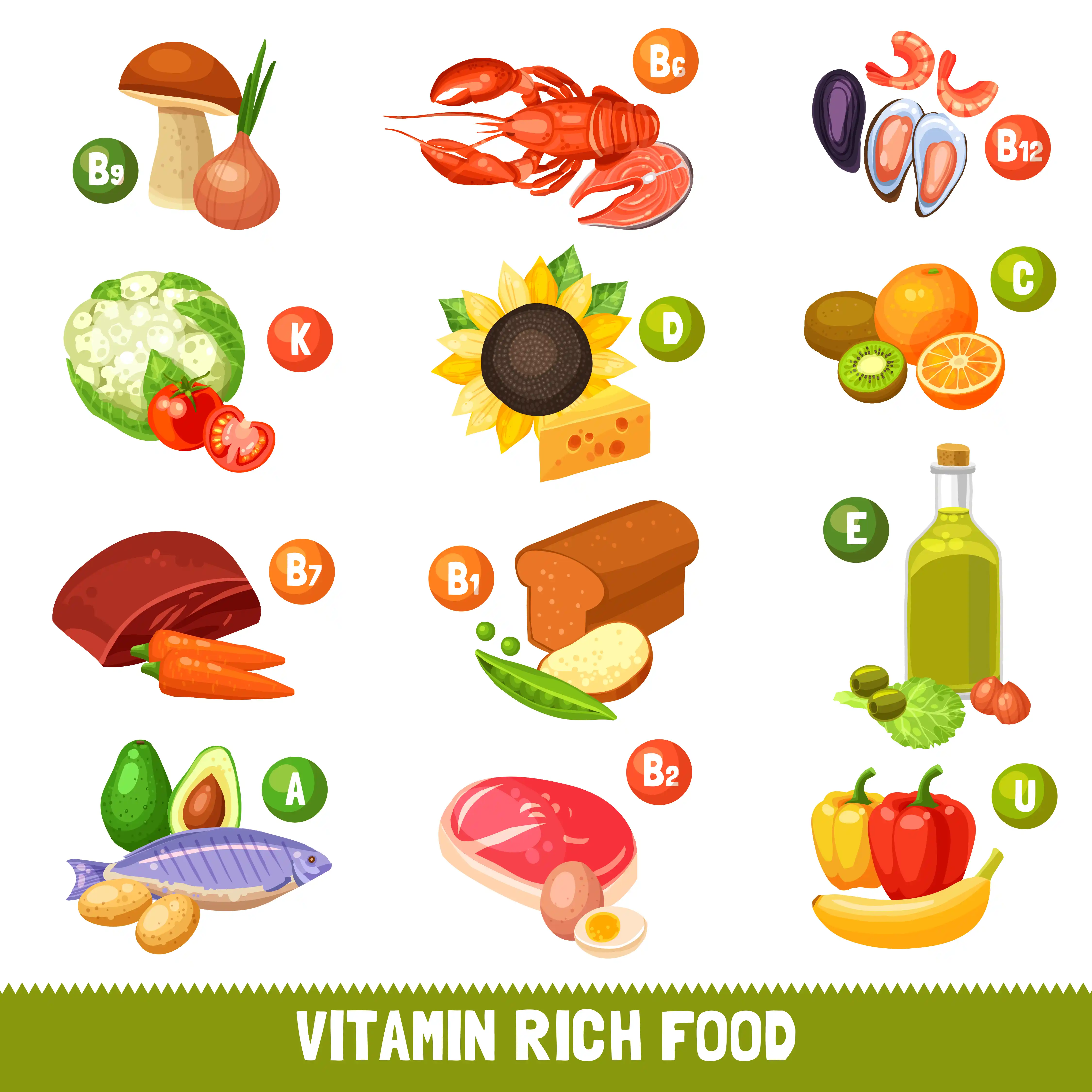
Why Is A Healthy Diet Important For Children?
Every age benefit from a healthy diet, but children, especially as they are continuously developing. A nutrient-rich diet allows your child to reach their full growth potential and maintain their energy level. The improvement of mental health, attention span, and brain development are all benefits of proper nutrition. Proper nutrition will also support their immune system to fight off infection and enable children to recover quickly from illnesses.
"A well-balanced diet protects them from malnourishment, prevents obesity, and reduces the risk of chronic diseases,"Dr Ong Sik Yong, Consultant Paediatrician at Gleneagles Hospital Kuala Lumpur explained.
Are vitamins and supplements necessary for healthy kids?
Minerals and vitamins are required for children's healthy growth and development. However, children do not get energy from vitamins. Instead, they assist our biological systems to run normally.
Parents frequently experience pressure to provide their kids with vitamins and nutritional supplements as the industry for these products expands and new marketing campaigns emerge.
Children who are healthy and eat a balanced diet typically do not require vitamins or supplements. Most kids, even finicky eaters, obtain adequate vitamins from their diet. In addition, foods like milk and cereal have essential elements like calcium and vitamin D added to them.
However, vitamins and supplements may be required in children that:
- Follow vegetarian or vegan diets - e.g., vitamin B12 since it's only found in animal-based foods
- Have food allergies - e.g., milk allergy Vitamin D and Calcium supplements required
- Are underweight or have faltering growth
- Have chronic illness - e.g., chronic malabsorption
| Vitamin/Supplement | Benefit | Examples |
| Vitamin A | | - Carrots
- Kesum (laksa leaf)
- Red capsicum
- Tomatoes
- Watermelon
|
| Vitamin B complex* | - Healthy eye, skin & nervous system
| - Meat
- Fish
- Poultry
- Eggs
- Wholegrain bread
|
| Vitamin C | - Healthy teeth & gums
- Helps heal cuts & wounds
| - Broccoli
- Brussels Sprouts
- Cabbage
- Cauliflower
- Oranges
|
| Calcium | | - Milk
- Cheese
- Soy drinks with added calcium
|
*Vitamin B complex includes: Vitamin B1, B2, B3, B5, B6, B7 and B12.

Types of vitamins & supplements for children and their benefits
Vitamins fall into two categories: fat-soluble vitamins (A, D, E, and K) and water-soluble vitamins (B-complex and C).
The body stores fat-soluble vitamins in its fat tissue for future use because they require fat in the diet to be absorbed.
Toxicity may develop from excessive intake. Conversely, water-soluble vitamins pass through the bloodstream and are excreted in the urine as opposed to being preserved.
A child’s growing body requires both fat-soluble and water-soluble vitamins, in varying amounts, each day.
| Vitamin/Supplement | Benefit | Examples |
| Fibre | | - Apples
- Bananas
- Beans
- Lentils
- Peaches
- Spinach
|
| Folate (Vitamin B9) | | - Asparagus
- Peas
- Strawberries
- Fortified cereals
|
| Iron | - Healthy blood
- Learning ability
| - Liver
- Red meat
- Beans
- Edamame beans
- Spinach
|
| Magnesium | | - Beans
- Nuts
- Spinach
- Wholemeal bread
|
| Potassium | | - Bananas
- Broccoli
- Potatoes
- Sweet Potatoes
- Tomatoes
|
Vitamin and supplement benefits and examples
If it is advised that a child take vitamins, one should opt for vitamins/supplements that are devoid of fillers, artificial flavours, food colours, and preservatives. The medication should be designed specifically for children and use the suggested dosage.
Risks of vitamin deficiency and overdose in children
Children who receive inadequate nourishment, particularly in Malaysia's rural areas, are at risk of developing vitamin deficiencies. For instance, a lack of vitamin A can result in respiratory infections, night blindness, stunted growth, dry, scaly, or itchy skin, infertility, and night blindness. Additionally, the risk of blindness and death will rise if untreated.
On the other side, if children consume too much of a supplement or vitamin, it could become poisonous. This is true of the body fat-storing, fat-soluble vitamins. For instance, do not give a child vitamin drops with cod liver oil, as cod liver oil also includes vitamins A and D.
Hypercalcemia, or a build-up of calcium, is caused by vitamin D toxicity and can induce nausea, vomiting, kidney stones, and even bone pain. Long-term use of high doses of vitamin B6 can result in potentially irreversible nerve damage.
If necessary, one supplement can be sufficient on its own as long as it contains the recommended amount of vitamin D. Some kids could consume too many vitamin pills, particularly if they taste and look like sweets. In order to minimise unintentional supplement overconsumption, it is best to keep vitamins out of young children's reach and talk to older children about adequate vitamin intake.

How to ensure that your child is getting enough nutrition through their diet?
Providing your child with a balanced meal that meets the daily requirements for vitamins and minerals can be difficult. Dairy or dairy substitutes, fruits, vegetables, whole grains, and protein-rich foods like poultry, fish, eggs, nuts, and legumes like beans and lentils are all part of a balanced diet.
A balanced diet with a wide variety of foods from all food groups and colours is essential to ensuring a sufficient intake of all vitamins because each food item includes different vitamins in varying levels. Your children will find meals more intriguing and enticing if you serve them in a colourful manner.
Written by
Dr Ong Sik Yong
Consultant Paediatrician
Gleneagles Hospital Kuala Lumpur





